junio 16, 2020
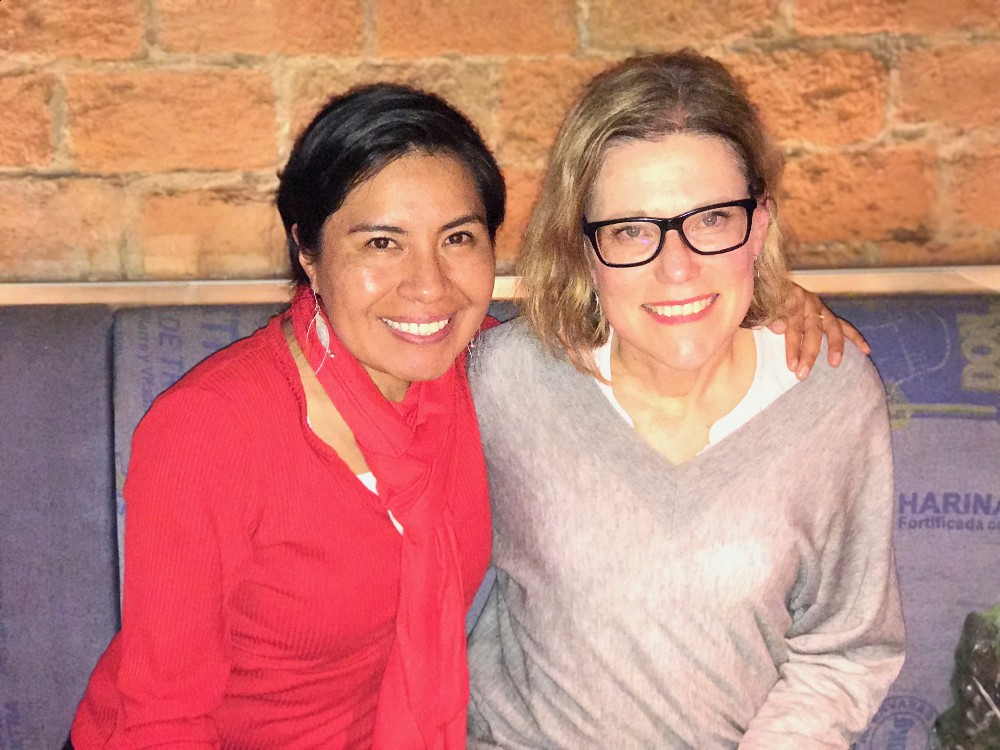
Her first day in La Paz, Bolivia, Ann-Sofie Gunnarsson found herself suspended 13,000 feet in the air. Moving along the city’s cable car transit system — the tallest in the world — Ann-Sofie, a leader at IKEA, looked out at snow-tipped mountains and the rosy sunset, then down below, where, unlike the natural scenery, the built environment was segregated.
She saw enclaves of mansions in some parts of the city, slums in others. The image stuck with her.
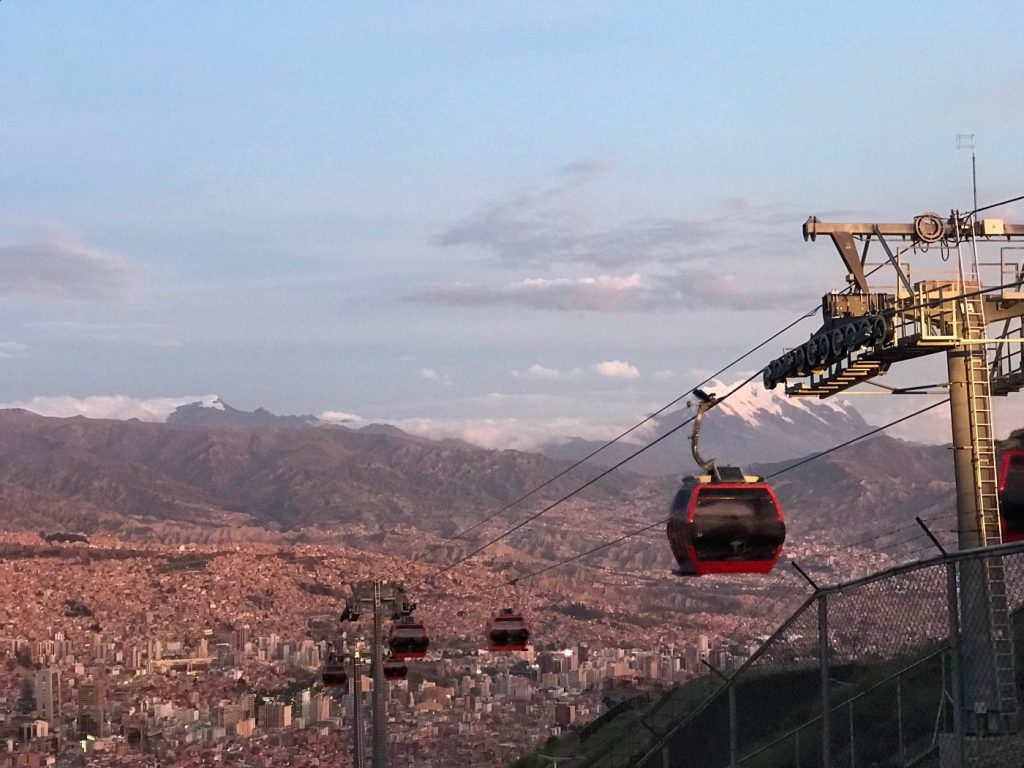
For Bolivian social entrepreneur Allison Silva, who sat with Ann-Sofie, it was a familiar sight. She wanted Ann-Sofie to see the disparities — “we have a lot of contrast in people, neighborhoods, everything.”
An Ashoka Fellow, Allison runs trainings for Bolivian entrepreneurs, helping expand job opportunities for people in her country. She met Ann-Sofie, Partner Development Leader for IKEA Social Entrepreneurship, in the Netherlands several months before, but the two had been talking ever since they were paired through IKEA and Ashoka’s Dela Accelerator in 2019. The accelerator connects 12 social entrepreneurs around the world with 13 advisors from different parts of the IKEA business to scale social impact.
Surveying the city from a bird’s eye view reminded Ann-Sofie of the visit’s purpose: joining with Allison to empower entrepreneurs in La Paz and across Bolivia’s contrasting landscape.
La Paz, Bolivia is full of entrepreneurs. Entrepreneurs sell all sorts of wares on the street. They market freshly made food. But nearly all remain in the informal sector, working without security, healthcare or benefits. Allison’s goal: help entrepreneurs move from the informal to the formal sector and raise up a generation of social entrepreneurs with a new mindset.
Allison was just 11 or 12 years old when her mom started involving her in the family business, which sold electric and kitchen appliances. She told her daughter she needed to learn how to be financially self-sufficient. Allison listened — at 23 years old, she was paying for her master’s degree using money she made by selling small plants when she was a child, the money she made working while she was studying, and the money she save from the working grant she obtained from the University.
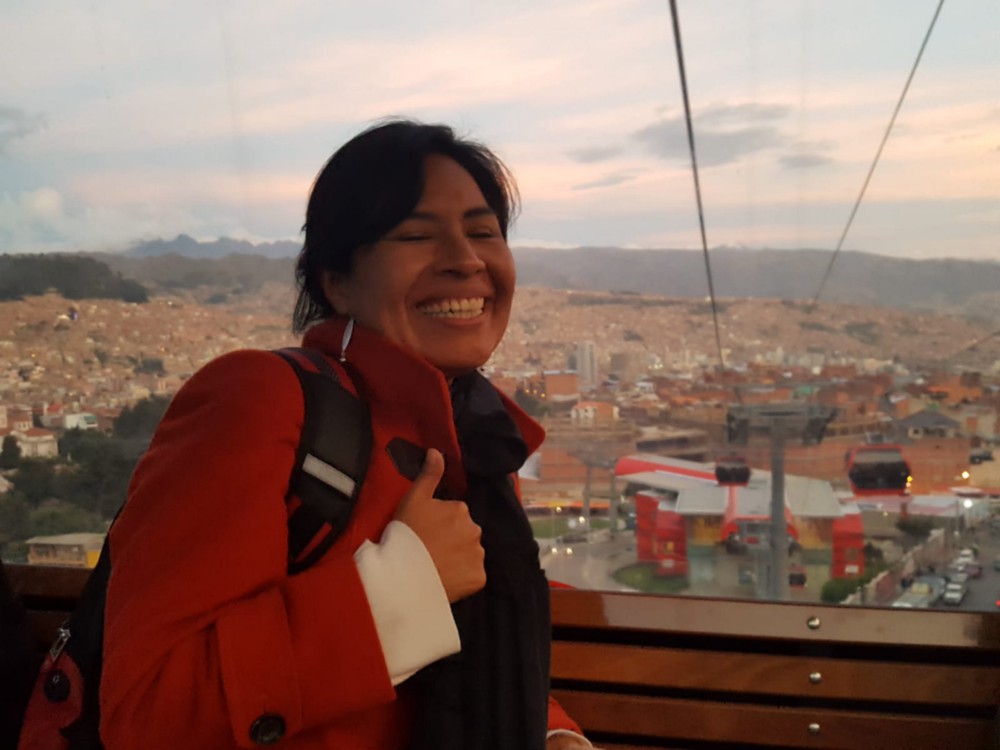
Growing up in an indigenous family, Allison remembers her parents emphasizing the importance of education. Her father was especially proud of Allison’s academic achievement. When she needed a computer for her engineering program at Georgetown University in the U.S., he sold the family’s Volkswagen to buy it.
At Georgetown University’s Global Competitiveness Leadership Program (GCL), Allison set her mind to empower her community back home with what she was learning. Returning to Bolivia, she co-founded the software company Eressea Solutions with her brother, Rene Silva, to create jobs. That’s when she realized she was missing some management skills, and noticed her parents, despite their 35 years of running a small business, also needed this training.
Nevertheless, the two siblings figured out the business, and just several years later they were closing major deals.
“We need to teach this to other people,” Allison told her brother. “We can create as many jobs as we want [through our company]…but if we teach and train and advise others, they will multiply this.”
While Rene runs the company, Allison runs their foundation, Emprender Futuro — which offers free training and resources to help Bolivian entrepreneurs grow their businesses through the platform Bolivia Emprende. She also shares information with entrepreneurs online and contributes to reports on the state of entrepreneurship in Bolivia.
Today, Allison’s parents still run their small business. Sometimes you just might find Allison’s mother at one of her daughter’s workshops.
While Allison had immersed herself in the world of entrepreneurship, Ann-Sofie was exploring different roles within the furniture giant IKEA.
Born and raised in Sweden, Ann-Sofie started working with IKEA through a web agency during the internet boom; after the IT hype died down, she joined the company’s communications division. Eventually an opportunity came her way to help customers live more sustainably — one of her major interests.
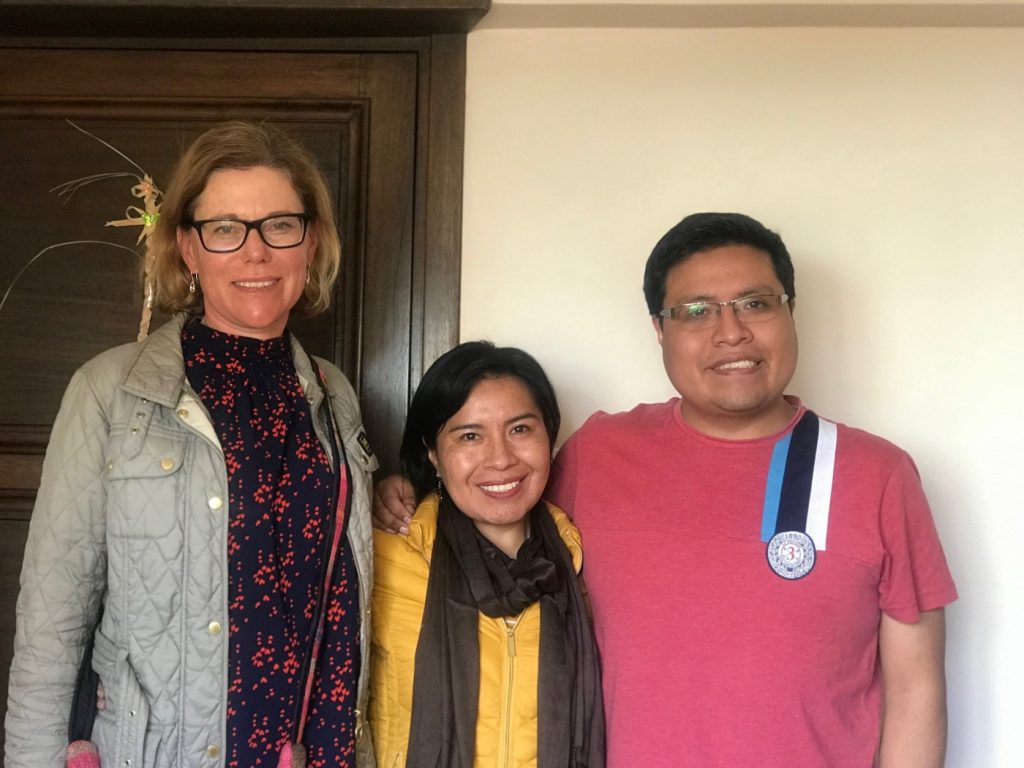
“That’s when IKEA really started integrating sustainability into the business,” she remembers. She helped to run tests with nine families, providing sustainability solutions and measuring how much water, energy, and food waste they could reduce, proving “it really was possible to change your behavior if you have the right solutions.”
Looking to try something new, she caught wind of a new social entrepreneurship initiative at IKEA — a little-known concept at the time.
Starting as the communications manager on a three-person team, she saw the project grow, and a couple turns along her career path landed her in a role developing new social business partners that produce products for IKEA. As part of her assignment, Ann-Sofie works with social businesses in India, Jordan and Thailand focused on economic empowerment for women.
“I think that as a woman when you travel around the world and meet other women, you have a connection,” Ann-Sofie says. “even if your living situation looks very different you can find connection points by talking about your children, family and aspirations in life.”
It didn’t take long for Allison and Ann-Sofie to hit it off. “We connected immediately,” Ann-Sofie says. Ann-Sofie admired Allison’s warmth and drive; Allison was impressed by Ann-Sofie’s open-mindedness and practical approach. Sometimes they’d stop in the middle of a conversation for a laugh or story before getting back to business.
Seeking to expand their operation, Allison was looking for help with marketing, communications, and future planning. Ann-Sofie’s background made her the natural partner. She and Ann-Sofie met in person for the first time in October 2019 and they continued with weekly talks until the site visit in Bolivia in January 2020.
While Allison had dedicated herself to accelerating other companies, “nobody accelerates me,” she says.
Over the last five years, the foundation has reached 5,470 people. In 2020 they hope to work in 6 cities across Bolivia, export toolkits, and accelerate companies through a variety of programs.
With Ann-Sofie in La Paz, they looked at the numbers and developed a business expansion plan. The process went quickly, helped along by Allison’s business background and Ann-Sofie’s experience.
Ann-Sofie, who regularly works on expansion plans, brought along a tool used by IKEA. Now able to better understand Allison’s company, she worked with the team to define the important ingredients for the plan — goals, key performance indicators, communications channels, key messages, and more.
“I was so happy because it was the best of the social entrepreneurship world and the best of the private sector world,” Allison says.
Accelerators usually focus on the entrepreneurs as the recipients of business advice. After all, the Dela accelerator gave Allison access to Ann-Sofie’s valuable experience and strategies from the corporate sector along with the chance to meet one-on-one with IKEA’s CEO.
The learning, however, goes both ways. “I think it has been a mutual sharing, which has been most important,” Ann-Sofie said. While Ann-Sofie and Allison work in different countries and at different scales, they’re both involved in job creation. Ann-Sofie was interested to see how Allison conducts trainings — “that’s something I can take with me,” she says, to help implement initiatives at IKEA.
By partnering to support social entrepreneurs working on a grassroots level, multinational corporations “have the capacity to create more impact,” Allison says.
“If we can make change together, it will be better because we (social entrepreneurs) have the inspiration and know where to attack with the programs, and they (large companies) have the experience with strategy to solve these problems.”
She believes the foundation for these partnerships should be trust and collaboration, and encourages other companies to follow IKEA’s lead by sharing their strategic expertise with social entrepreneurs.
“It’s not saying ‘help us,’ Allison explains. “It’s saying ‘let’s work together and let’s build better solutions for the world.’”
Read more about the DELA Program, a collaboration between Ashoka and Ikea Social Entrepreneurship.
Source: Medium
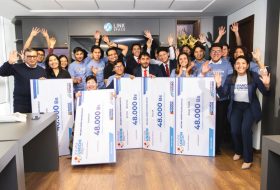
julio 7, 2025
Este 7 de julio en la ciudad de La Paz,...
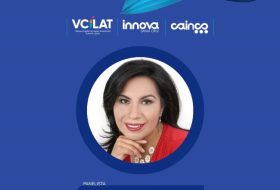
julio 2, 2025
En el marco del Venture Capital & Impact Investment LATAM...
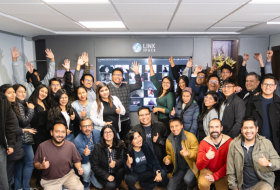
junio 23, 2025
Con el objetivo de fortalecer el ecosistema de innovación del...
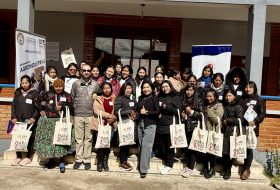
junio 19, 2025
La Academia para Mujeres Emprendedoras (AWE Bolivia) llega al área...